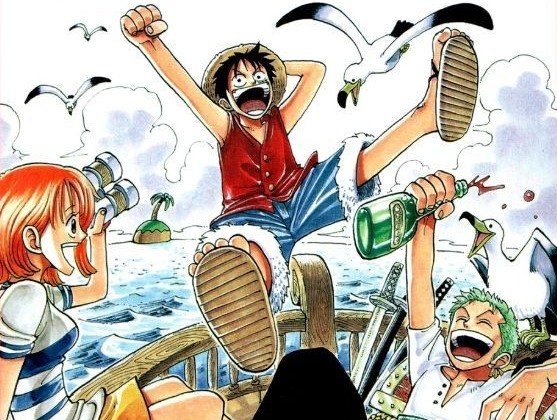Kazuhiko Torishima: The Legendary Editor Behind Manga’s Greatest Hits
Kazuhiko Torishima is a name synonymous with excellence in the world of manga publishing, especially for his pivotal role at Shonen Jump, the premier magazine where some of the most iconic manga series have graced its pages. Among his notable achievements, Torishima is credited with discovering and guiding the legendary Akira Toriyama, the mastermind behind the immensely popular Dragon Ball series. His insights and editorial decisions shaped not only the direction of Toriyama’s works, such as making Arale the lead character in Dr. Slump, but also enhanced the action sequences in Dragon Ball, demonstrating his keen understanding of what resonates with readers.
However, amid the accolades, there lies an intriguing question regarding one of the most successful manga of all time: What’s the issue with One Piece?
Kazuhiko Torishima, who has overseen the approval of monumental series like Yu-Gi-Oh, Naruto, and Hunter x Hunter, was also instrumental in the initial development of One Piece. Yet, the journey to approval was not straightforward; the series, originally titled "Romance Dawn," faced three rejections before finally being greenlit as a continuous series. The core of Torishima’s critique wasn’t about the story or characters, which he found compelling. Instead, his concerns revolved around the presentation of the One Piece world, particularly how its panels were laid out and the overall composition.
At first glance, this may seem like a trivial detail, but the artistry behind manga extends far beyond the visuals alone. Crafting an engaging and coherent scene involves intricate decisions regarding panel sizes, layout, and pacing, which can significantly impact the reader’s experience.
“Why does this matter in today’s context?” you might ask.
The relevance of Torishima’s critique has only intensified over time! As One Piece has expanded in scope and complexity, it has become an ever-growing universe filled with countless characters and narratives. This vastness has created a challenge for Eiichiro Oda, the series’ creator. If he were to devote adequate attention to every subplot and character, the manga could potentially stretch on indefinitely.
Moreover, Torishima, who previously edited Dragon Ball, suspects that Oda’s involvement in supervising the anime adaptation and live-action series may be detracting from the time he needs to focus on the manga itself. This concern resonates with avid readers who follow the series weekly, as many have observed a shift in the manga’s visual and narrative quality. Pages have increasingly become cluttered, overflowing with information, and—most critically—poorly structured, which detracts from the overall reading experience.
One poignant example illustrates this issue clearly. In chapter 1154, readers are given insight into the tragic childhood of Loki, the prince of Elbaf. During a pivotal moment in which young Loki, grappling with his abusive past, witnesses a mother desperately trying to protect her child, the emotional weight of this scene is significant. This contrasts sharply with his own experiences of maternal neglect, leading to a moment of despair that drives him to the brink of suicide.
Unfortunately, this critical moment was confined to less than half a page, crammed among various other storylines and details about Loki. The impact of such a serious subject was diminished, losing the sensitivity and emotional resonance it deserved.
This lack of focus exemplifies the validity of Kazuhiko Torishima’s earlier criticisms. He posits that today’s editors may lack the authority to guide authors like Oda effectively. Torishima emphasizes that his concerns are not about Oda’s talent, which is undeniable, but rather about the manner in which the narrative is being handled, resulting in a dilution of its quality and essence. He has stated, “If I were Oda’s editor, I would provide extremely rigorous feedback on the manga because he has talent. My dissatisfaction is not so much with One Piece itself, but with the editorial policies of Shonen Jump.”
It’s a tough stance, but one that is increasingly relevant as each new chapter of One Piece raises eyebrows. With an overwhelming number of unresolved plot threads, new locations, and characters being introduced, the manga’s quality appears to be declining, which may be a necessary compromise to ensure Oda can conclude the series in a timely manner.
Despite these challenges, One Piece remains one of the most extraordinary creations in the history of manga. The series has captivated audiences worldwide, creating a legacy that is unlikely to be matched. However, the balancing act between maintaining quality storytelling and expanding a vast universe is delicate.
As readers continue to engage with the unfolding saga of One Piece, they are reminded of the foundational principles that make manga an art form. The intricate dance of storytelling, character development, and visual presentation is essential to creating impactful narratives that resonate with audiences. The challenge for Oda remains not only to craft a satisfying conclusion but also to honor the depth and richness of the world he has created.
In summary, Kazuhiko Torishima’s insights into the editorial process highlight the importance of maintaining clarity and emotional depth in storytelling. His legacy as an editor continues to influence the manga industry, reminding creators of the responsibility they hold in delivering powerful narratives. As One Piece continues its journey, readers hope for a return to the careful craftsmanship that originally made it a phenomenon, one that can both honor its legacy and pave the way for future generations of manga artists.
